Candidates for Medals of the Republic and National Honorary Titles will be recognized for the first time in commemoration of the 70th anniversary of the founding of the People's Republic of China.
Medal of the Republic:
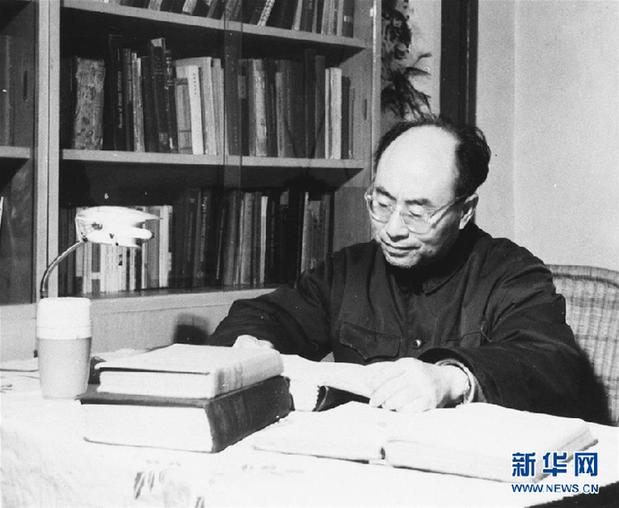
Yu Min works at his office in 1980. [File Photo/Xinhua]
Yu Min, nuclear physicist, born August 1926 and died Jan 16, 2019
Yu played a crucial role in the design of China's nuclear weapons and won the Two Bombs, One Satellite Achievement Medal. In January 2015, the nuclear physicist won China's top science award for his outstanding contribution to the country's hydrogen bomb research.
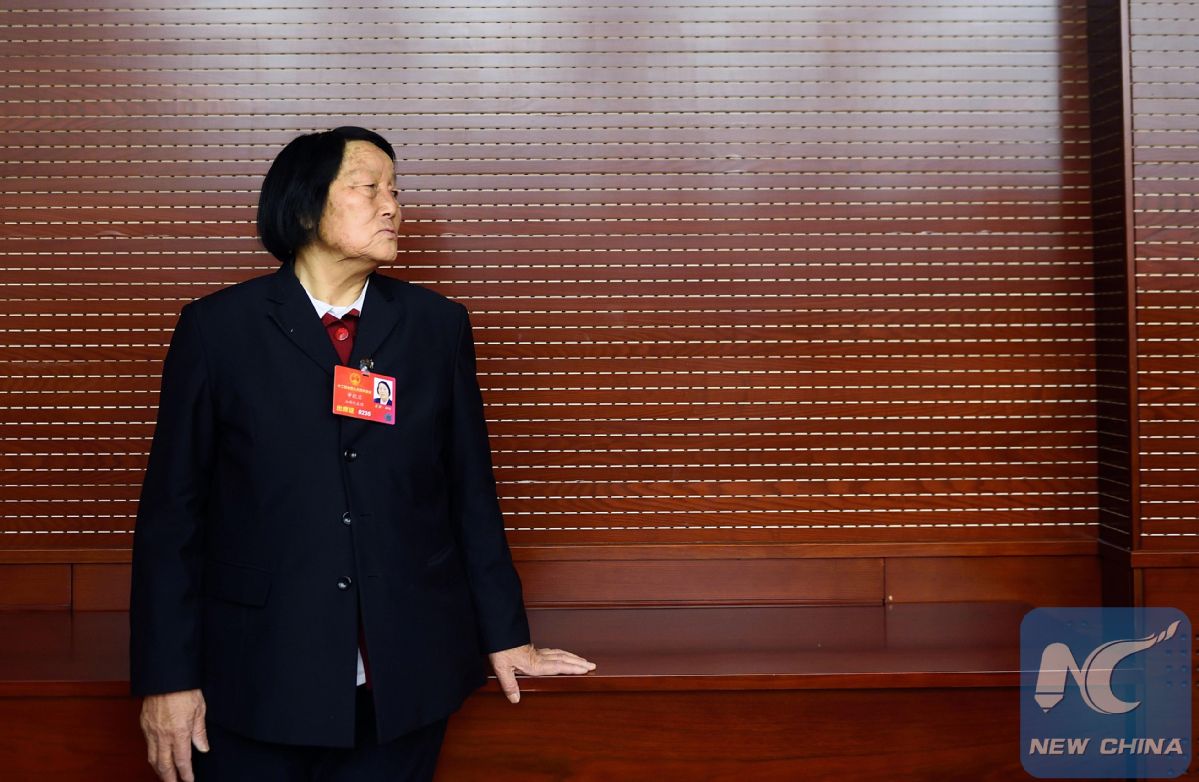
Shen Jilan poses for a photo during the fourth session of the 12th National People's Congress in Beijing, China, March 11, 2016. [Photo/Xinhua]
Shen Jilan, farmer, born December 1929
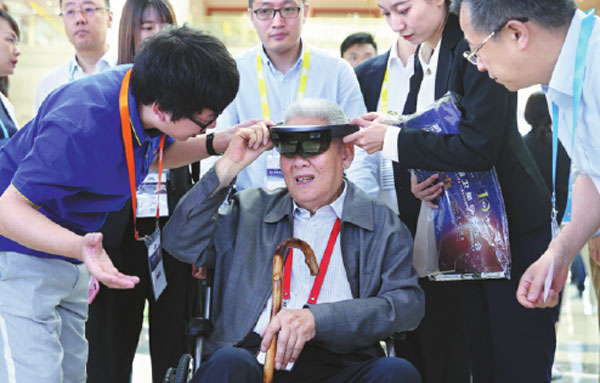
Sun Jiadong, former chief designer of the Beidou navigation system, tries out a device combining Beidou and augmented reality technologies at an exhibition in Beijing on May 22, 2019. [Photo by Wang Zhuangfei/China Daily]
Sun Jiadong, satellite expert, born April 1929
Sun Jiadong, another winner of China's Two Bombs, One Satellite Achievement Medal, made contributions to the country's satellite technologies and space exploration. He was chief designer of both the Beidou navigation system and China's lunar exploration project.
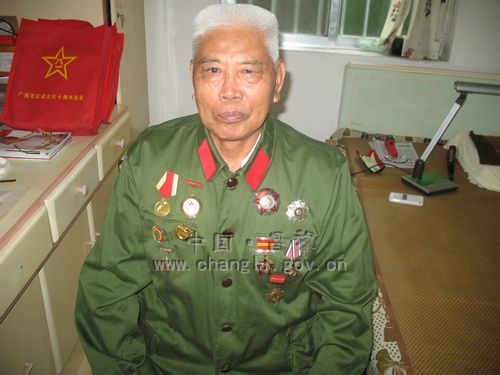
Li Yannian [Photo/changli.gov.cn]
Li Yannian, combat hero, born November 1928
Li was a combat hero who made great contributions to the establishment and defense of the People's Republic of China. He took part in the Liberation War, the War to Resist US Aggression and Aid Korea, and the Sino-Vietnamese War. He was awarded the title of First Class Hero and other war-related honorary medals. He was former deputy political commissar of Unit 54251, and after his retirement, he continued to carry forward the revolutionary tradition.
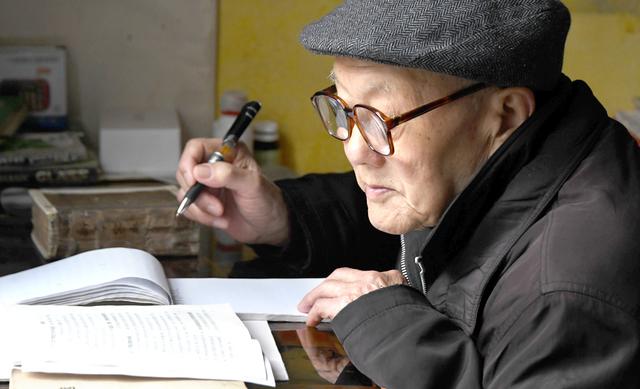
War hero Zhang Fuqing, 95, reads and studies at home in Laifeng county, Hubei province. [Photo/Xinhua]
Zhang Fuqing, combat hero, born December 1924
Zhang, a combat hero, served as a People's Liberation Army soldier in the Liberation War and was twice awarded the title of Combat Hero. He volunteered in 1955 to work in Laifeng county, Hubei province's most remote county, so he could devote his life to the poor, mountainous region. He was former vice-head of the Laifeng branch of China Construction Bank.
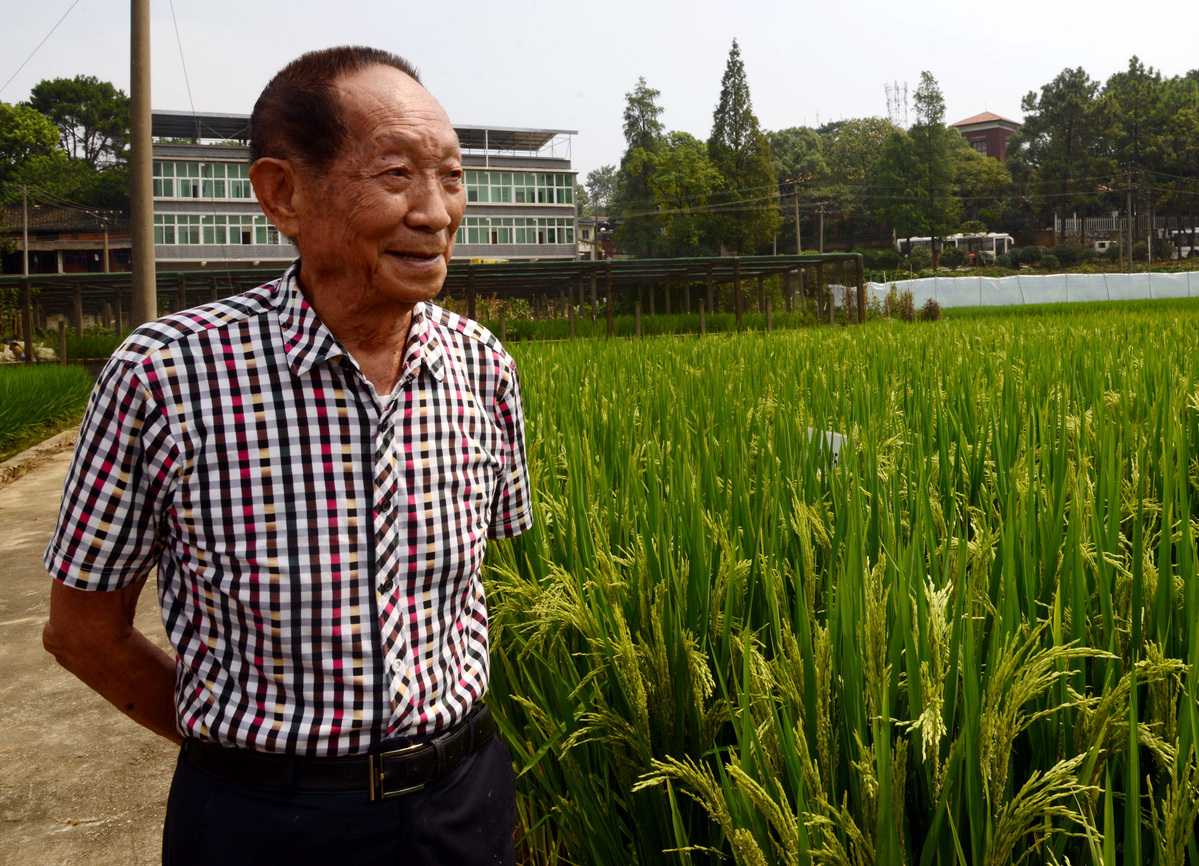
Yuan Longping is known as the Father of Hybrid Rice. [Photo/Xinhua]
Yuan Longping, agriculturalist, born in September 1930
Yuan, the Father of Hybrid Rice, is an agriculturalist who devoted himself to agricultural education and research. He was the first person in the world to develop a hybrid rice strain, and his research on higher rice yields helped provide a solution to worldwide hunger and starvation. He won China's top science award and many other honors at home and abroad.

Huang Xuhua spearheaded the design of China's first-generation nuclear submarine. [Photo provided to China Daily]
Huang Xuhua, nuclear scientist, born March 1926
Huang spearheaded the design of China's first-generation nuclear submarine. When Long March First, China's earliest nuclear submarine prototype, took its maiden voyage on Dec 26, 1970, Huang – who was 44 at the time – set a world record as the first chief engineer to be onboard a submarine for its test dive.
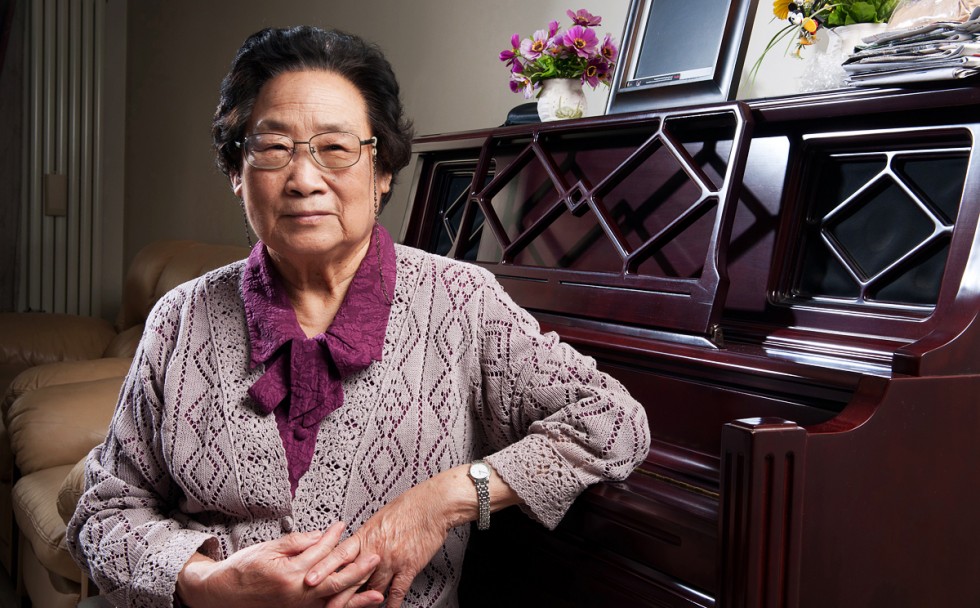
Chinese scientist Tu Youyou, winner of the 2015 Nobel Prize for the discovery of artemisinin, is pictured at her home in Beijing. [Photo/Xinhua]
Tu Youyou, pharmacologist, born December 1930
Tu, winner of the 2015 Nobel Prize for the discovery of artemisinin, a group of drugs used to combat malaria, is the first Chinese woman to win the prize. She solved the problem of failing anti-malarial treatment and made important contributions to scientific and technological innovations in traditional Chinese medicine and human health.

Veteran Chinese writer Wang Meng. [Photo provided to China Daily]
Wang Meng, writer, born October 1934
Wang is former minister of culture. Many of his works have been translated into more than 20 languages and published in various countries. Wang, a winner of China's prestigious Maodun Literature Prize, has made outstanding contributions to contemporary Chinese literature.
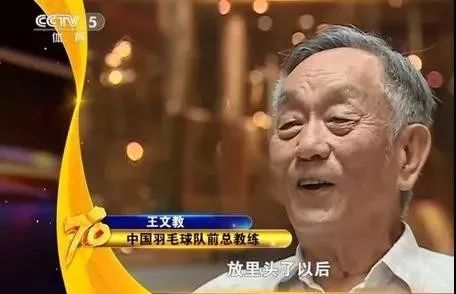
Wang Wenjiao [Photo/screenshot of CCTV news]
Wang Wenjiao, badminton coach, born November 1933
Wang was head coach of China's national badminton team. He returned to China from Indonesia in 1954 to revitalize the sport in his homeland. During his tenure as head coach, China's national badminton team made remarkable achievements.
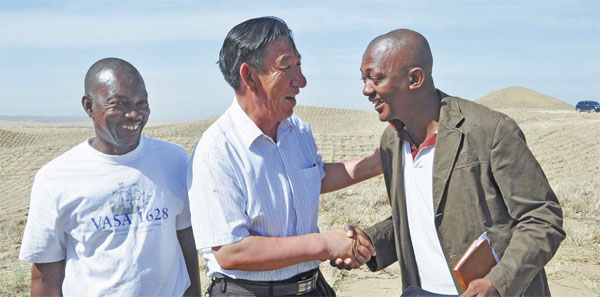
African journalists talk with Wang Youde, desert fighter, in Baijitan of Ningxia Hui autonomous region in Northwest China. [Photo provided to China Daily]
Wang Youde, desert fighter, born September 1953
Wang led his colleagues to build 600,000 mu (40,000 hectares) of sand fixation forest and managed to control nearly 1 million mu of quicksand, effectively preventing the expansion of the Maowusu Desert. His work contributed valuable experience to sand prevention and control in China.

Wang Qimin [Photo/IC]
Wang Qimin, engineer, born September 1937
Wang, former assistant to general manger of Daqing Oilfield, has always been engaged in scientific research. A theory he advanced led to a technological breakthrough in the development and use of off-surface reservoirs both at home and abroad. Daqing Oilfield from 1976-2002 achieved high and stable production in crude oil, with over 50 million tons produced per year for 27 years, considered a miracle in oilfield development worldwide. Wang was honored as a National Advanced Worker and National Outstanding CPC Member and also received the reform pioneer medal.
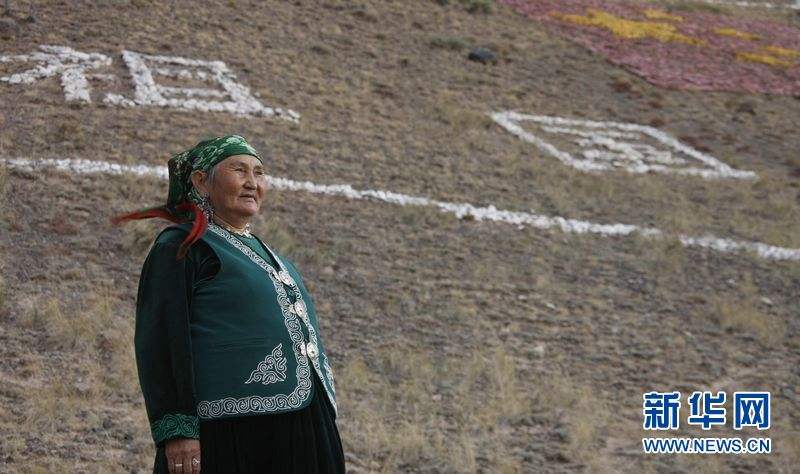
Burumahan Maoleduo. [Photo/Xinhua]
Burumahan Maoleduo, born June 1942
A border guard of the Jigen township in Wuqia county, Northwest China's Xinjiang Uyghur autonomous region, Burumahan Maoleduo has patrolled the border for 50 years. She has to walk at least 20 kilometers every day to patrol the borderline with an average altitude of over 4,000 meters. Some stones found at the borderline bearing on one side the characters for China, hand-engraved in the simplest way by Burumahan, have become a symbol of patriotism for local guardians. She was honored as a National Model of the People and the Army.

Ye Peijian [Photo/Chinanews.com]
Ye Peijian, aerospace engineer, born January 1945
Ye specializes in deep-space exploration at the China Academy of Space Technology and is also a member of the Chinese Academy of Sciences and a senior space expert. Known as the Father of Chang'e, he stands out as one of the most prominent scientists in China's space program. He has won a special honor of the National Science and Technology Progress Award.
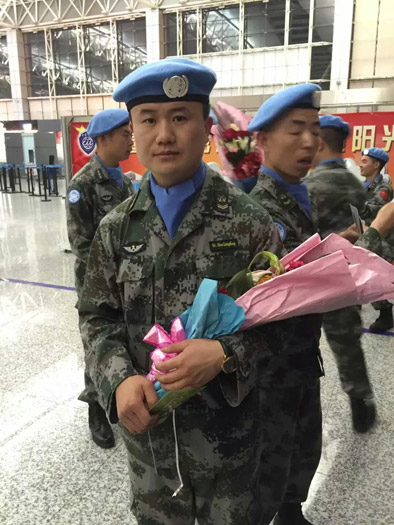
Shen Liangliang poses for a photo during the farewell ceremony before he leaves for Mali in May, 2016. [Photo/Xinhua]
Shen Liangliang, peacekeeper, born August 1987, died June 2016
Shen was a peacekeeper killed during his service in the United Nations Peacekeeping Mission in Mali, in May 2016. During an unexpected attack at his base, Shen saved a fellow soldier at the cost of his own life. Shen was later honored as a martyr and awarded the first-class merit citation.
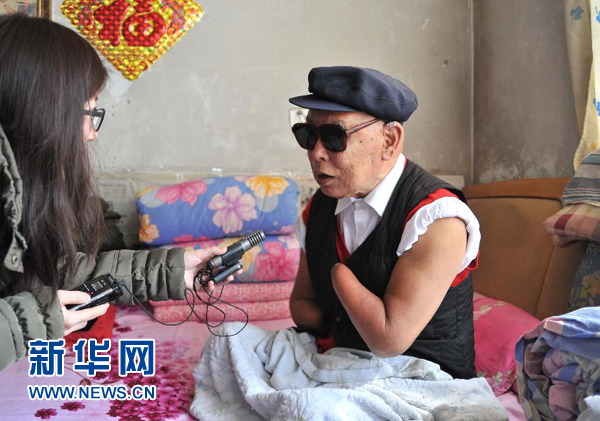
Zhu Yanfu is interviewed at home in Zhangjiaquan village, Xili town, Yiyuan county, East China's Shandong province, in March 2014. [Photo/Xinhua]
Zhu Yanfu, combat hero and village leader, born July 1933
Zhu is a combat hero who featured prominently in the War to Resist US Aggression and Aid Korea. After Zhu lost limbs and left eye on the battlefield, he returned to his hometown in East China's Shandong province. Despite his physical disabilities, he has worked as the village Party secretary for 25 years, during which time he's made great efforts to improve villagers' lives and lift them from from poverty.
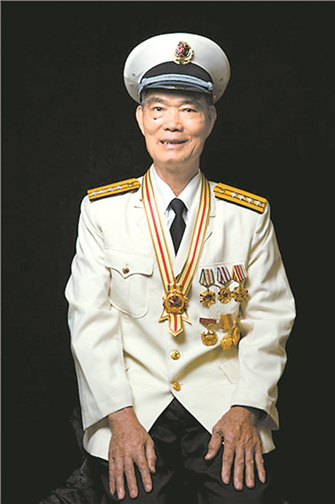
Mai Xiande [Photo/People.cn]
Mai Xiande, combat hero, born December 1945
Mai is a combat hero who made great contributions to naval battlegrounds. In August, 1965, Mai fought relentlessly for three hours despite severe head injuries and bleeding. He later came to be known as the warrior of steel.
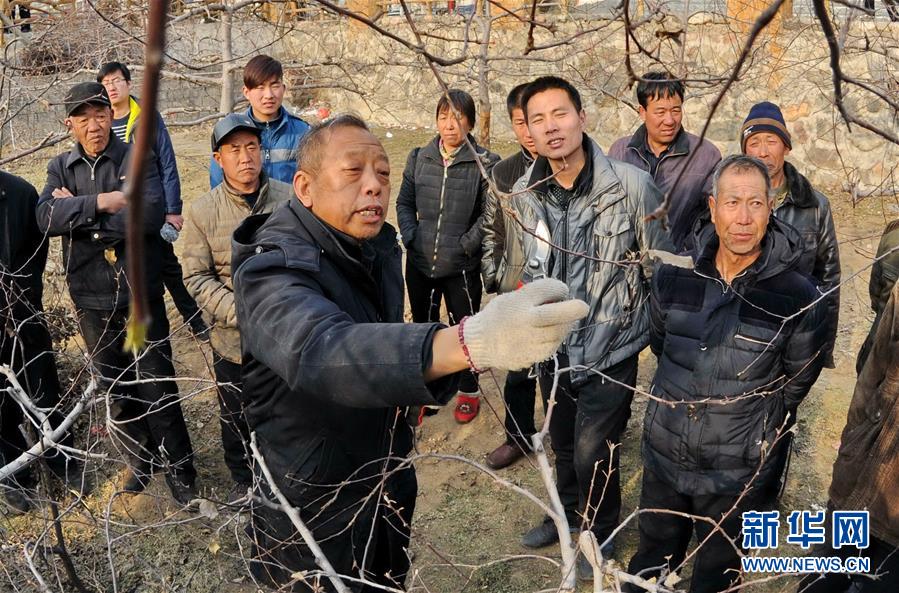
Li Baoguo (center) teaches villagers trimming techniques in Gangdi village, Qiuxian county, North China's Hebei province, in January 2016. [Photo/Xinhua]
Li Baoguo, agriculturist, born February 1958, died April 2016
Li was an agriculturist who devoted himself to the research and application of agricultural technologies. He developed a number of crop-growing techniques, and established over a dozen advanced models for the development and management of mountainous regions, which greatly improved villagers' lives.

Li Daoyu [Photo/IC]
Li Daoyu, diplomat, born August 1932
Li is a diplomat who has made great contributions to China's decision-making. During Li's tenure as UN representative, he handled China's roles in complex international issues, such as the first Gulf War, and helped strengthen China's voice in the world. As former Chinese ambassador to the United States, he helped maintain healthy Sino-US relations and safeguarded China's interests.

Wu Wenjun reads books on Aug 16, 2011. [Photo/Xinhua]
Wu Wenjun, mathematician, born May 1919, died May 2017
Wu became well-known in mathematics in the late 1940s for his contribution to topology, one of the field's major areas. His work has been described by mathematicians as pioneering, and some of his theories have been included in textbooks. The Wu formula and Minor Planet No 7683 were named after him.

A file photo of Zhang Chao. [Photo/cri.cn]
Zhang Chao, pilot, born August 1986, died April 2016
Zhang is a former squadron leader of Unit 92950. In April 2016, when he ran into sudden air danger during a mission, he dealt with it decisively, doing his best to keep control of his aircraft. He was forced to parachute and, unfortunately, died at the age of 29.

A file photo of Nan Rendong. [Photo from the National Astronomical Observation]
Nan Rendong, scientist, born February 1945, died September 2017
Nan was the founder of the Five-hundred-meter Aperture Spherical Telescope (FAST) project, which helps humans to explore the universe and search for extraterrestrial civilizations. An asteroid has been named after him, with approval from the International Astronomical Union.
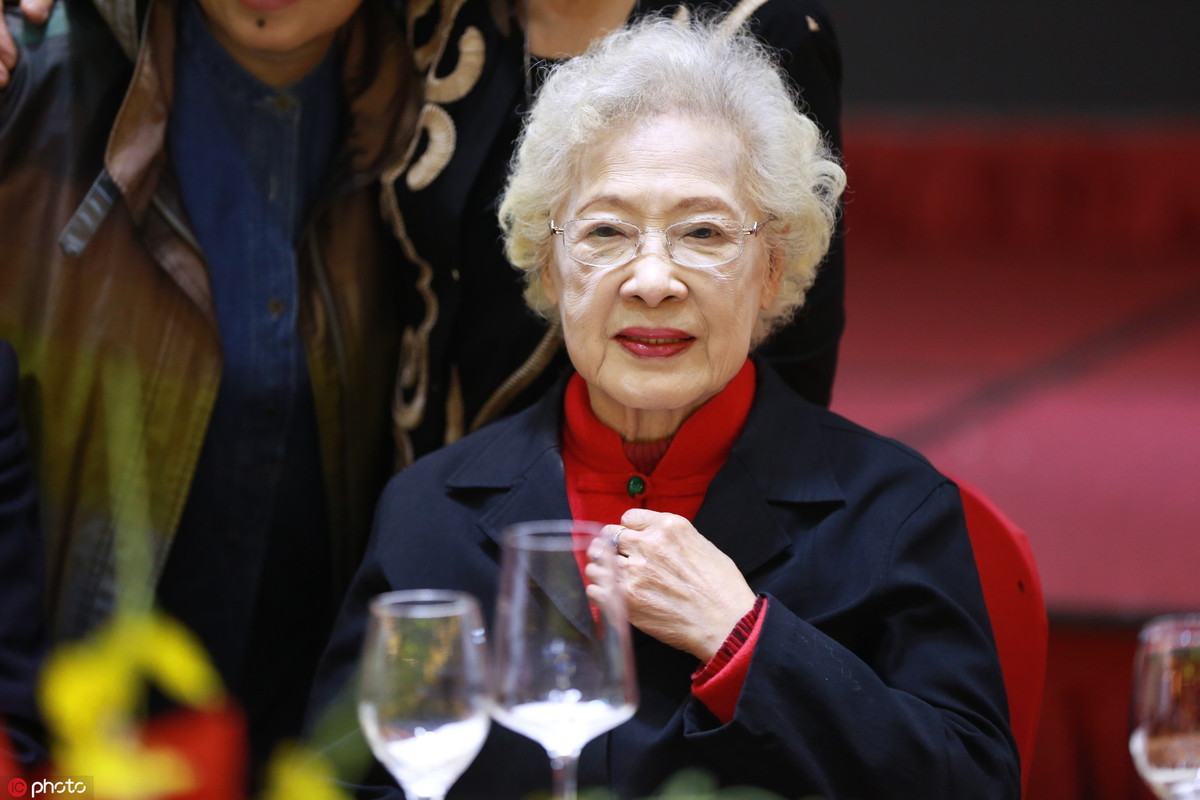
Qin Yi attends a festival in Xiangyang, Central China's Hubei province, on Oct 28, 2016. [Photo/IC]
Qin Yi, actress, born January 1922
Qin is a national-level actress as well as a member of the third, fourth and fifth National Committee of the Chinese People's Political Consultative Conference. Adhering to the creative orientation of literature and art serving socialism and taking people as the center, she has starred in more than 30 films.

Duguimaa reads a Mongol newspaper at her home in North China's Inner Mongolia autonomous region, May 10, 2017. [Photo/Xinhua]
Duguimaa, herdswoman, born April 1942
Duguimaa became mother at the age of 19 when she adopted 28 orphans from Shanghai in the early 60s, when southern China suffered a period of natural disasters. To foster the orphans, she taught herself to become an obstetrician and helped scores of young mothers deliver babies at a time when there was little medical equipment available. She has received honors from the regional women's federation and the publicity department for her devotion.

A file photo of Raidi. [Photo/Xinhua]
Raidi, born August 1938
Raidi has long held an important leading position in the Party committee of the Tibet autonomous region. Over the past few decades, he has made considerable efforts to improve the region's development, harmony and stability, helped increase people's livelihoods, and won the love and respect of the people of all ethnic groups in Tibet.
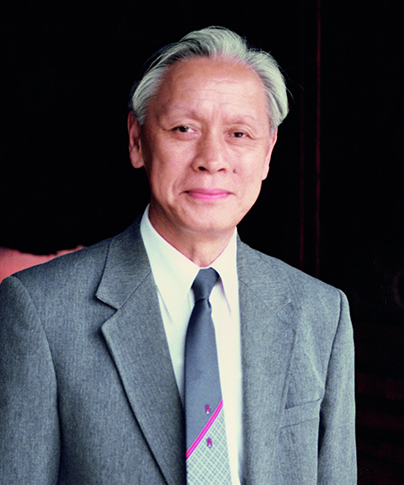
A file photo of Gu Fangzhou. [Photo/Xinhua]
Gu Fangzhou, medical scientist, born June 1926, died January 2019
Former CAMS and PUMC president Gu Fangzhou developed China's first polio vaccines, perhaps most notablty the Sugar Ball attenuated oral vaccine first created in 1959. A countrywide immunization strategy eradicated the indigenous polio strain by 1994. Poliomyelitis has since been effectively controlled, with China being declared polio-free by the World Health Organization in October 2000.

Gao Mingxuan (Left) [Photo/Legalinfo.gov.cn]
Gao Mingxuan, jurist, born May 1928
Gao is a jurist, legal educator, and the pioneer of criminal law in New China. As the only scholar who fully participated in the formulation of the People's Republic of China's first criminal code, as well its first doctoral supervisor of criminal law, he has made great contributions to criminal law research in the country.

Gao Derong visits a family from the Dulong ethnic minority group in December 2014. [Photo/Xinhua]
Gao Derong, prefecture leader, born March 1954
Gao is former deputy director of the local people's congress standing committee in Nujiang Lisu autonomous prefecture, Southwest China's Yunnan province, and a member of the Dulong ethnic minority group. He devoted himself to infrastructure construction, industry development and poverty-alleviation work in the Dulong river village. During his tenure, the first road to connect the small village in the mountains with the outside world was built, greatly improving villagers' lives. He was honored as a National Excellent Communist Party Member and an Exemplary Individual of Ethnic Unity and Progress.
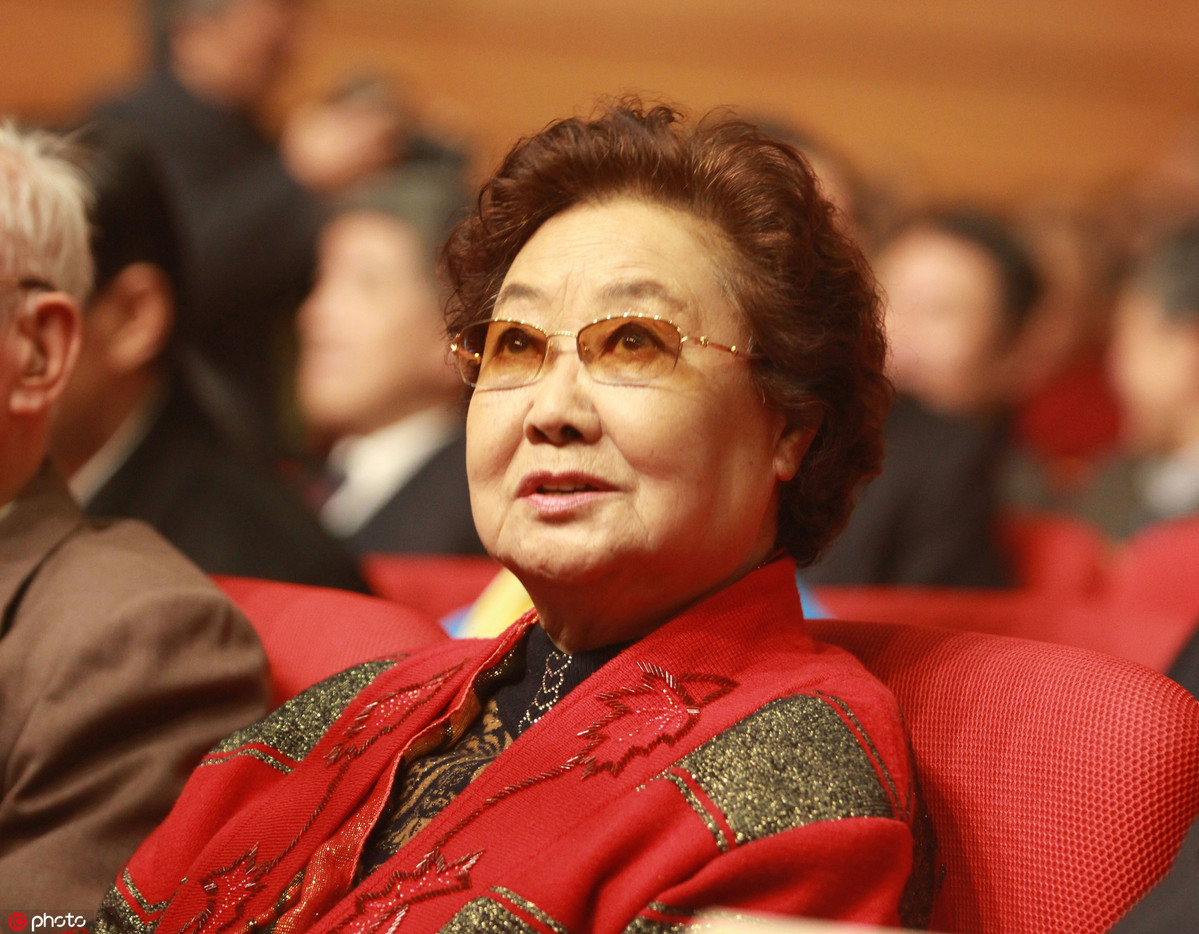
Guo Lanying attends an award ceremony in Wuhan, Central China's Hubei province, in January, 2015. [Photo/IC]
Guo Lanying, opera singer, born December 1930
Guo is an opera singer and vocalist who has made great contributions to China's music and music education. As a singer and performer, she is well-known for her popular songs and the vivid characters she portrayed. As a vocal artist and music educator, she helped establish the folk opera performance system and helped develop traditional Chinese vocal arts.
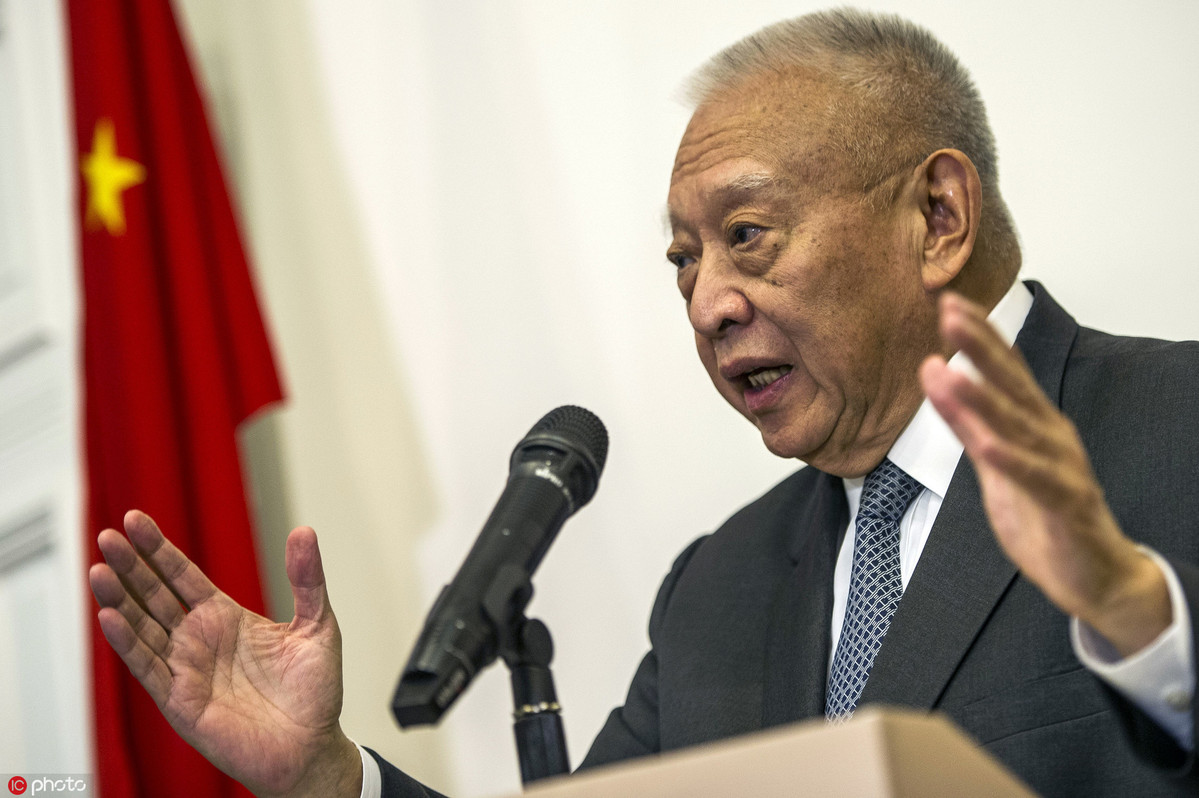
Tung Chee-hwa speaks at a news conference in Hong Kong in September 2014. [Photo/IC]
Tung Chee-hwa, former Hong Kong Chief Executive, born July 1937
As the first Chief Executive of the Hong Kong Special Administrative Region, Tung has made great contributions to the peace and development of Hong Kong. During his tenure, he devoted himself to ensuring the implementation of the "one country, two systems" policy. He also safeguarded social security and residents' interests during the 1997 Asian financial crisis and the worldwide spread of SARS in 2003.
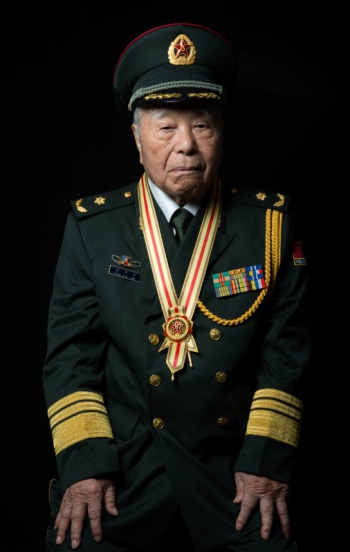
Cheng Kaijia [Photo/Xinhua]
Cheng Kaijia, nuclear physicist, born August 1918, died November 2018
Cheng, winner of the Two Bombs, One Satellite Achievement Medal, is one of the pioneers of China's nuclear weapons development and a co-founder of the nation's nuclear test system. He participated in a number of nuclear tests, including the first atomic and hydrogen bomb tests in the country.

Fan Jinshi [Photo/IC]
Fan Jinshi, archaeologist, born July 1938
Fan Jinshi is an archaeologist who has devoted herself to research and study in Dunhuang, Northwest China's Gansu province. She is an explorer and a guardian of Dunhuang's cultural relics. Based in the desert regions, she established a chronological catalog of the Mogao Caves, which facilitated the scientific protection of the ancient formations. She was honored as a National Excellent Communist Party Member and rated as a national advanced worker.

